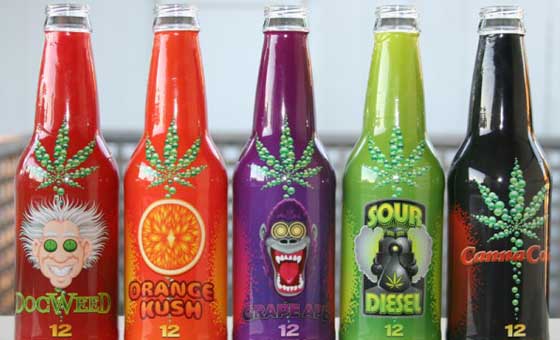This link is provided as a free service of Marijuana4Sale.com . Please read the article located at the following link: DeseretNews.com
News
Marijuana Infused Soda soon to go on Sale in Colorado

This link is provided as a free service of Marijuana4Sale.com . Please read the articles located at the following links: upi.com
Oregon high court to decide handgun-marijuana issue
This link is provided as a free service of Marijuana4Sale.com . Please read the article located at the following link: WashingtonPost.com LINK IS CANCELLED BY PUBLISHER
2 charged with robbing Southern California marijuana grower
This link is provided as a free service of Marijuana4Sale.com . Please read the article located at the following link: BostonHerald.com
Medical Marijuana Convention Ads on Denver Buses Prompt Public Outrage
DENVER – Drivers are about to start seeing ads for what is being billed as the largest-ever cannabis convention on RTD buses.
“This is merely an ad about an event being held at the Colorado Convention Center. There is nothing specific in that which is illegal per se,” RTD spokesman Scott Reed said.
After some discussion, RTD decided to allow the ads on some of the vehicles in its fleet.
The event is called KushCon.
“[It will be] 300,000 square feet of marijuana lifestyle events,” Wanda James, the KushCon II organizer, said.
James says it is the country’s largest cannabis convention ever, and it will be at the Colorado Convention Center on Dec. 17 through Dec. 19. More than 400 vendors have signed up.
James says Kush is a strain of marijuana.
“This is a legitimate industry. This is a legitimate business. This is a legitimate ad,” she said.
To James, RTD’s decision to allow the ads on 33 of its buses represents a big deal.
“The fact that RTD now has ads on the sides of its buses goes to the legitimacy of that piece and to the social acceptance here in Colorado of the marijuana industry,” she said.
Reed says hold on, downplaying the ads.
“This does not violate our advertising policy. It merely advertises an event being held at the Colorado Convention Center,” he said.
RTD still does not allow ads for medical marijuana centers on its buses.
“We have a policy in place that allows us to control things that would be extremely controversial or wouldn’t be in the best interest for RTD to advertise,” Reed said.
While some newspapers, including The Denver Post, accept ads for medical marijuana centers, many TV stations, including 9NEWS, do not.
(KUSA-TV © 2010 Multimedia Holdings Corporation)
Tod H. Mikuriya, Grandfather of Medical Marijuana Movement, Dies May 29, 2007
Tod H. Mikuriya, 73, Dies; Backed Medical Marijuana
By MARGALIT FOX
Published: May 29, 2007
Dr. Tod H. Mikuriya, a California psychiatrist who was widely regarded as the grandfather of the medical marijuana movement in the United States, died on May 20 at his home in Berkeley. He was 73.
Marcio Jose Sanchez/Associated Press
Dr. Tod H. Mikuriya
The cause was complications of cancer, his family told California news organizations.
Dr. Mikuriya, who helped make the use of marijuana for medicinal purposes legal in California, spent the last four decades publicly advocating its use, researching its effects and publishing articles on the subject.
He was an architect of Proposition 215, the state ballot measure that in 1996 made it legal for California doctors to recommend marijuana for seriously ill patients. He was also a founder of the California Cannabis Research Medical Group and its offshoot, the Society of Cannabis Clinicians.
As a result of his work, Dr. Mikuriya was considered a savior by some, a public menace by others. To his supporters, he was a physician of last resort: for years, a stream of patients with illnesses like cancer and AIDS made their way to his private practice in Berkeley. Dr. Mikuriya sometimes wrote a dozen or more recommendations for marijuana each day; at his death, he was reported to have approved the drug for nearly 9,000 patients.
Elsewhere, however, Dr. Mikuriya’s work found little favor. In 1996, for instance, Gen. Barry R. McCaffrey, director of the Office of National Drug Control Policy under President Bill Clinton, publicly derided the doctor’s medical philosophy as “the Cheech and Chong show.”
In 2000, the Medical Board of California accused Dr. Mikuriya of gross negligence, unprofessional conduct and incompetence for failing to conduct proper physical examinations on 16 patients for whom he had recommended marijuana. In 2004, the board gave him five years’ probation and a $75,000 fine. Dr. Mikuriya, who appealed the ruling, was allowed to continue practicing under the supervision of the state-appointed monitor.
A longtime registered Republican (he became a Libertarian in later years), Dr. Mikuriya began researching marijuana’s therapeutic possibilities in the 1960s. He maintained a list of more than 200 ailments whose symptoms it was said to relieve, including stuttering, insomnia, premenstrual syndrome, writer’s cramp, poor appetite and some side effects of cancer treatment, among them nausea and vomiting.
Dr. Mikuriya saw his work, he often said, as a means of righting a historical wrong, namely the backlash against medical marijuana that began in the “Reefer Madness” era of the late 1930s.
“It had been available to clinicians for one hundred years until it was taken off the market in 1938,” he told The East Bay Express, a Northern California newspaper, in 2004. “I’m fighting to restore cannabis.”
Tod Hiro Mikuriya was born in Bucks County, Pa., on Sept. 20, 1933. His mother, the former Anna Schwenk, an immigrant from Germany, was a special-education teacher. His father, Tadafumi Mikuriya, the descendant of a Japanese samurai family, was a civil engineer. Tod Mikuriya received a bachelor’s degree in psychology from Reed College in Oregon in 1956. From 1956 to 1958, he was a medic in the United States Army.
Dr. Mikuriya earned his M.D. from Temple University in 1962. While studying there, he became intrigued by a reference in a pharmacology textbook to the medical use of marijuana, the first stirrings of his future career.
From 1966 to 1967, Dr. Mikuriya directed the drug addiction treatment center of the New Jersey Neuropsychiatric Institute, in Princeton. In 1967, he became a consulting research psychiatrist at the Center for Narcotics and Drug Abuse Studies of the National Institute of Mental Health, where he was in charge of marijuana research. He left the post after several months, he later said in interviews, because he felt that the agency was interested primarily in research that highlighted the negative effects of the drug.
Dr. Mikuriya is survived by two sisters, Mary Jane Mikuriya and Beverly Mikuriya; a son, Tadafumi, known as Sean; and a daughter, Hero. Information on other survivors could not immediately be confirmed.
Among doctors who support the therapeutic use of marijuana, many are publicly circumspect when asked if they ever take a taste of their own medicine. Not so Dr. Mikuriya. As The Los Angeles Times reported in 2004, “He willingly acknowledges, unlike most of his peers in cannabis consulting, that he does indeed smoke pot, mostly in the morning with his coffee.”
